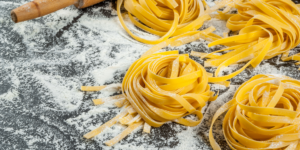It is our responsibility to protect the environment. Otherwise, we will begin to suffer the consequences of its deterioration. Food holds one of the most vital positions in preserving our environment. With food sustainability–through sustainable eating–you can play a part in “saving” the environment.
What is sustainable eating?
Sustainable eating is a lifestyle that considers how certain foods impact the environment. It involves choosing food options that have the least harmful effect on the environment. But beyond the food itself, certain practices are involved in sustainable eating.
What are some sustainable foods?
Vegan and vegetarian diets are the closest diets to sustainable eating. However, it is still contended that these diets may not be as sustainable as they seem, given that many vegetables and fruits eaten by people on such diets are imported through means harmful to the environment.
Nevertheless, you need to know this about a sustainable food plan. In a sustainable diet, sugars and processed foods are generally avoided. The diet comprises vegetables, legumes, fruits, whole grains, and sometimes nuts. Fish and meat are also part of sustainable foods, provided environmentally safe breeding methods are used. This would mean the cows are fed grass or chickens are given vegetables instead of imported feed.
Habits for sustainable eating
Eat sustainable foods
This is the most obvious answer. If you want to incorporate sustainable eating into your life, you must eat sustainable foods. Plant-based diets make this simple, but meat eaters can also eat sustainably. Seafood, dairy, and vegetables are all acceptable for sustainable eating.
Eat seasonal and local foods
Cultivating foods outside their season requires more resources, which often involves using non-sustainable methods. The environmental impact of food transportation is also detrimental.
Eating foods produced locally in a given season reduces the environmental requirements–such as water–and damage–in terms of carbon emission from planes.
Other sustainable foods include organic fruits and vegetables, mushrooms, seaweed, and mussels.

Reduce food waste
As mentioned above, sustainable eating goes beyond the foods eaten. It also includes the things you do to ensure a safer and more protected environment. In such cases, certain habits should be built. One major problem with sustainable eating is food waste.
What is food waste?
Food waste refers to unconsumed foods or food products. The process of subjecting food to this condition is called food wastage. There are four different ways in which food waste may come about. It could be a by-product of human activities. Food waste originating from agricultural, production, or manufacturing processes. Food waste could also be from expired products or from unsold food items (that end up going bad). Lastly, food waste could result from leftovers, which is the most common source.

Research has shown that about a third of food produced globally goes to waste, and 8 percent of total global greenhouse emissions come from food waste. This is not only morally and economically improper, considering the number of people in food poverty, but it is also quite dangerous to the environment.
There are two ways by which food waste is taken care of: leave it to rot or incinerate it. Incineration is dangerous for the environment because of the carbon dioxide released in the process. The ashes are also potentially harmful to the environment.
The next approach you may want to take is to leave it to rot, hoping it becomes a sort of fertilizer or compost. But this is not the case. In fact, leaving food waste to rot is about thirty times more dangerous for the environment than incineration. Leaving food waste to rot allows methane emission, which is a major contributor to climate change.

How to minimize food waste
Besides sustainable eating, one surefire way to, from the kitchen, protect our environment is to reduce food waste. In doing this, remember the saying that goes: tiny drops make an ocean. You may think your input is only little, but all these little inputs from many different people over time are what adds up to the big things. A safer environment can exist if you can reduce your food waste.
Take inventory
Wasting food starts from having excess food at hand. If you have excess food, you will waste what you cannot eat either through leftovers or leaving it to spoil. Before you go grocery shopping, take inventory of your pantry. Be sure you are not buying ingredients you already have at home.

Meal planning
Meal planning is one of the most effective ways to reduce food waste because it guides you to make informed decisions about the food items you buy and the quantity you buy.

Take care of leftovers
Sometimes, you genuinely think you can finish a portion of food, only to realize you overestimated yourself. But these leftovers don’t have to become food waste. With proper storage, you can preserve them for a later time. Using airtight containers and refrigerating food preserves it long enough for you to eat it later. However, there is a limit to the duration this preservation method can work. You should eat the food as soon as possible.

Store foods appropriately
Food stored improperly will spoil. For example, liquid milk should be stored in the fridge once it has been opened. Doing otherwise will make it go sour. Fruits and vegetables are also kept fresh and safe for consumption for longer periods when refrigerated. Dry foods should be kept dry by storing them away from moisture.

Portion control
This prevents you from taking more food than you can eat at a time. It is better to serve yourself smaller portions of food and go multiple times for top-ups than to take a large amount of food that ends up in the bin.

Bottomline
Foods produced by forced or unconventional methods could harm the environment. You can play your role in protecting the environment by eating naturally produced foods. Beyond this, reducing your daily food waste contributes largely to the preservation of the environment.











